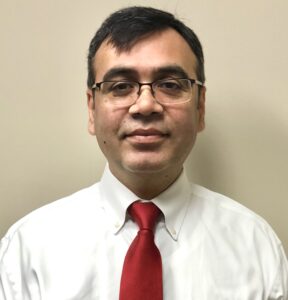A few years ago, Mohammad Kamran, MD, a rheumatologist at Wellstar Health System in Marietta, Ga., got involved in advocacy as a way to help protect patients with rheumatic disease. The catalyst for his action was the tragic death of a patient, a 22-year-old Black woman with lupus. The young woman had been diagnosed years before, but because she was uninsured, she couldn’t afford medication or regular visits to her doctor. She was admitted to the hospital suffering from severe heart failure and kidney failure. Despite the healthcare team’s best efforts, she didn’t survive.
Dr. Kamran decided he wasn’t going to complain—he was going to take action. Shortly after, he met with some of his state legislators to tell them about his patient and to talk about the challenges facing patients with rheumatic disease.

Dr. Kamran
Advocacy continues to be an important part of Dr. Kamran’s professional mission, and he recently joined the ACR Government Affairs Committee (GAC) to get involved at a higher level. He spoke with The Rheumatologist about his experience and why advocacy is critical during the COVID-19 pandemic and beyond.
The Rheumatologist (TR): Why is advocacy still important in the midst of a public health emergency?
Dr. Kamran: This pandemic is different than any other public health emergency would be. I mean, it’s kept everybody at home. Everything changed, so advocacy even became more important to educate our legislators, bring forth the problems that we will be facing or that we are facing and talk to them about how they can help us navigate those problems.
TR: How has the COVID-19 pandemic changed how you approach rheumatology advocacy?
Dr. Kamran: The pandemic may have made it a little easier, ironically. Previously, if I was going to go to the Hill, I had to close my office and take time off for in-person meetings. In-person meetings are very productive, and I would love to go back to that as well, but what is different is now it is easier to get involved because we can advocate virtually without leaving our offices or hometowns. This way one can be more involved and reach out to more legislators.
TR: Does your position in a large, multi-specialty group in Georgia affect how you approach advocacy?
Dr. Kamran: No. I always keep the patients in the forefront. They are the center, and they should be the center of everything we do and advocate for.

